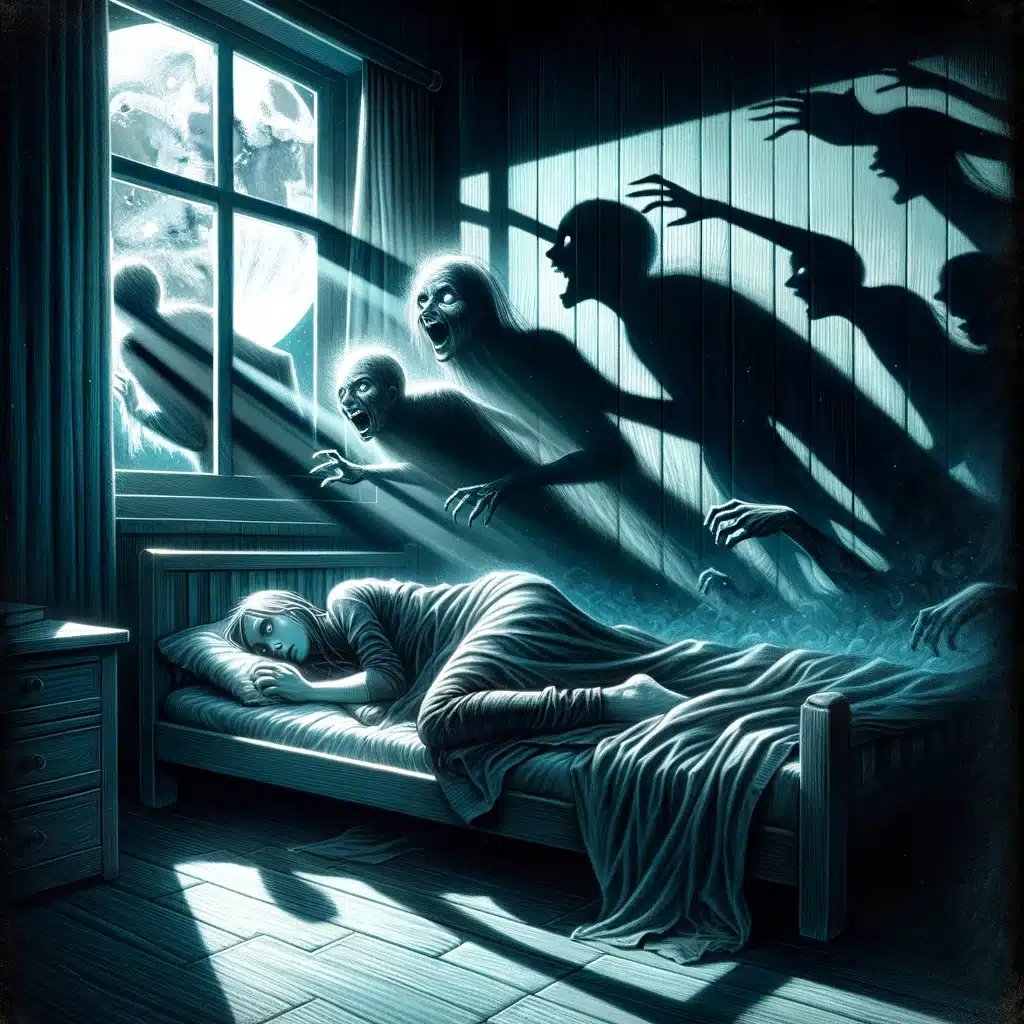Last night, I heard a ringing in my ear and couldn’t move or speak for hours while feeling awake but scared. What happened?
It sounds like you experienced a condition known as sleep paralysis, accompanied by tinnitus (the ringing in your ears). Sleep paralysis occurs when you cannot move your body as you’re falling asleep or upon waking up, and it’s a transitional state between sleep and wakefulness. During this time, it’s common to experience hallucinations and heightened emotional responses like fear. The ringing in your ears could have been tinnitus, which is often more noticeable in quiet environments, or it could have been part of the hallucinatory experiences that can occur during sleep paralysis.
The sensation of being unable to move, despite being mentally awake, can be alarming. Sleep paralysis is often linked to disrupted sleep schedules, sleep deprivation, stress, and some underlying conditions. While it’s typically harmless, if this becomes a frequent occurrence or significantly impacts your well-being, it might be worth consulting with a healthcare professional. They can help determine if there’s an underlying condition that needs to be addressed or provide strategies to improve your sleep quality and reduce the incidence of sleep paralysis.
Additionally, ensuring good sleep hygiene, such as maintaining a regular sleep schedule, creating a comfortable sleep environment, and avoiding stimulants before bedtime, may help reduce the frequency of these episodes. If stress and anxiety are factors, relaxation techniques before bed, such as deep breathing, meditation, or gentle stretching, can also be beneficial.
Last night, I heard a ringing in my ear and couldn’t move or speak for hours while feeling awake but scared. What happened?
Sleep paralysis is a fascinating and sometimes unsettling phenomenon, but knowing more about it can help demystify the experience and make it less frightening. Here are some additional key points:
-
Not Uncommon: Sleep paralysis is relatively common. Studies suggest that up to 30-40% of people experience it at least once in their lives. It’s more frequent in teenagers and young adults, though it can happen at any age.
-
Psychological Factors: Stress, anxiety, and depression are linked to an increased risk of experiencing sleep paralysis. Mental health management can potentially reduce occurrences.
-
Sleep Disorders: People with narcolepsy, irregular sleep schedules, and sleep deprivation are more prone to sleep paralysis. Addressing these sleep issues can help mitigate the risk.
-
Position Matters: Sleeping on your back is associated with a higher incidence of sleep paralysis. Changing your sleep position might reduce the frequency of episodes.
-
Cultural Interpretations: Throughout history and across cultures, sleep paralysis has been interpreted in various ways, often involving supernatural explanations. Understanding it as a neurological condition can alleviate some of the fear.
-
No Direct Health Risks: While sleep paralysis can be terrifying, it’s generally considered harmless in the absence of other sleep disorders. However, frequent episodes can lead to fear of sleeping, which can impact overall sleep quality and mental health.
-
Management Strategies: Practicing good sleep hygiene, maintaining a regular sleep schedule, minimizing stress before bed, and creating a comfortable sleep environment can help prevent sleep paralysis. For those experiencing severe or frequent episodes, professional consultation is advised.
-
Research Continues: The exact causes of sleep paralysis are still being researched. It’s believed to be related to the disruption in the transition between REM (rapid eye movement) sleep and wakefulness, where the brain is awake but the body remains in a state of muscle atonia (paralysis) that prevents us from acting out our dreams.
